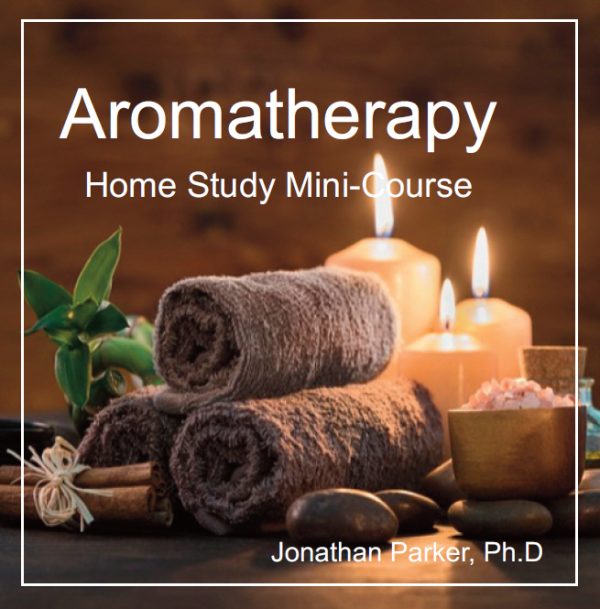Can Essential Oils Make You Sick? What to Consider

Hey there, amazing readers! 🖐️ Just a quick note: yes, we know there are a lot of ads here. Trust us, we get it—it’s not the prettiest look, but they help us keep this blog alive and kicking. Those pesky little ads cover the costs of all the behind-the-scenes magic, from hosting and tech stuff to creating content we hope you’ll love.
We’re committed to delivering quality posts, and your support (even just sticking around despite the ads) means everything to us. So, bear with us, and thanks for helping us keep the good vibes rolling. Now, on to the fun stuff! 😉
TRANSLATE BUTTON AT THE END OF THE ARTICLE
A Quick Overview
When it comes to wellness trends, essential oils have taken the spotlight.
Their alluring scents and potential health benefits have made them a staple in many households.
However, as their popularity rises, so do concerns about safety.
Can essential oils make you sick?
The answer is not a simple yes or no.
It varies based on many factors, including individual sensitivities, quality, and usage practices.
Let’s delve into this fragrant topic and address what you need to know about essential oils.
What Are Essential Oils and How Do They Work?
Essential oils are concentrated extracts derived from plants.
They capture the plant’s scent and flavor, known as its "essence." From lavender to eucalyptus, each oil offers unique properties.
These oils are typically obtained through methods like steam distillation or cold pressing.
So how do they work?
Well, when we inhale essential oils, the tiny molecules enter our bodies and can interact with our brain’s limbic system, which influences emotions and memories.
This connection is part of why some people find comfort in their aromas.
Others apply oils topically, where they can penetrate the skin and enter the bloodstream.
Essential oils have been used for centuries in aromatherapy, massage, and holistic healing.
Many people believe these oils can promote relaxation, relieve stress, and even alleviate various ailments.
But while they can be beneficial, they also come with risks that we need to explore.
The Benefits of Using Essential Oils for Wellness
The benefits of essential oils can be impressive, but let’s not get ahead of ourselves.
Here are some of the common advantages people seek when using these oils:
Stress Relief: Oils like lavender and chamomile are often celebrated for their calming effects.
Improved Sleep: Many find that diffusing oils before bedtime can enhance sleep quality.
Digestive Support: Peppermint oil can help soothe digestive issues for some individuals.
Immune Support: Certain oils, such as tea tree and eucalyptus, are known for their antimicrobial properties.
Headache Relief: A dab of peppermint oil on your temples might help ease tension headaches.
Skin Care: Oils like tea tree and lavender can promote healthier skin when used correctly.
Mood Enhancement: Citrus oils are uplifting and can help improve mood and energy levels.
Natural Cleaning: Many people use oils like lemon and tea tree for their antibacterial properties in DIY cleaning products.
Respiratory Health: Oils like eucalyptus can assist with clear breathing.
Pain Relief: Some essential oils, like rosemary and peppermint, may help alleviate muscle soreness.
These benefits may sound fantastic, but let’s not overlook the potential downsides.
Can Essential Oils Cause Allergic Reactions?
Yes, essential oils can cause allergic reactions.
Just like anything else, our bodies can react in unexpected ways.
Some individuals may experience skin irritation or allergic dermatitis when applying oils directly to the skin.
Symptoms can include:
Redness
Itching
Swelling
Rashes
If you’re new to essential oils, start small.
Always perform a patch test before diving in.
Dilute your oil with a carrier oil, apply a small amount to your inner arm, and watch for any signs of a reaction over 24 hours.
If you notice anything amiss, it’s best to steer clear of that particular oil.
Understanding Sensitivities to Essential Oil Ingredients
Beyond allergies, sensitivities to specific oil components can also arise.
Some people might react to compounds found in common oils, such as limonene or linalool.
If you have sensitive skin or conditions like eczema, it’s crucial to be cautious.
Consider this: while I was experimenting with essential oils, I used a blend containing eucalyptus.
I didn’t think much of it until I noticed some redness on my wrist.
It was a good reminder that even natural products aren’t always gentle on everyone.
Additionally, some individuals may find that certain oils trigger headaches or respiratory issues.
If you find yourself feeling unwell after using a particular oil, trust your instincts.
Avoiding that oil in the future could save you discomfort.
The Role of Quality in Essential Oil Safety
Not all essential oils are created equal.
The quality of the oil plays a significant role in its safety and efficacy.
Low-quality oils can contain additives, synthetic ingredients, or even contaminants that could harm your health.
Here’s what to look for:
Purity: Always check for 100% pure essential oil on the label.
Source: Research where the oil comes from.
Organic or sustainably sourced oils are often better.
Testing: Look for brands that provide third-party testing for purity and quality.
Brand Reputation: Do a little digging.
Customer reviews and company transparency can tell you a lot.
I learned this the hard way after purchasing a cheap bottle of lavender oil that smelled more like chemicals than flowers.
Lesson learned!
Safe Dilution Practices for Essential Oil Use
One of the golden rules of essential oils is dilution.
Using oils undiluted can lead to irritation or adverse reactions.
Here’s how to do it safely:
Carrier Oils: Always mix essential oils with a carrier oil before applying them to your skin.
Some popular carrier oils include coconut oil, jojoba oil, and sweet almond oil.
Dilution Ratios: A common dilution ratio for adults is 1-2 drops of essential oil per teaspoon of carrier oil.
For children, a more diluted approach of 1 drop per tablespoon is often recommended.
Avoid Sensitive Areas: Be cautious around sensitive areas like the eyes, and don’t use oils on broken skin.
Having these practices in place can make your essential oil experience much safer.
Essential Oils and Asthma: What You Need to Know
For those with asthma or respiratory issues, using essential oils requires extra caution.
While some oils can be beneficial, others might trigger symptoms.
Here are a few considerations:
Avoid Irritating Oils: Oils with strong scents, like peppermint and eucalyptus, can provoke asthma symptoms in some individuals.
Ventilation: Always ensure proper ventilation when using a diffuser.
Consult Your Doctor: If you have asthma, it’s wise to consult your healthcare provider before using essential oils.
I once used a strong eucalyptus oil when I had a cold, thinking it would help me breathe easier.
Instead, I ended up feeling more congested!
How to Identify Symptoms of Essential Oil Toxicity
While rare, essential oil toxicity can occur.
Symptoms can vary based on the type of oil and the amount used.
Common signs of toxicity include:
Nausea
Vomiting
Diarrhea
Dizziness
Skin irritation
If you suspect that you or someone else has ingested essential oil or is experiencing any severe symptoms, seek medical attention immediately.
Essential Oil Interactions with Medications Explained
Essential oils can also interact with medications.
Just like grapefruit juice can affect certain drugs, some essential oils can alter the effectiveness of medications.
Here are some points to consider:
Blood Thinners: Oils like ginger and ginger can enhance the effects of blood thinners.
Diabetes Medications: Certain oils may lower blood sugar levels, affecting diabetes management.
Sedatives: Oils with calming properties, like lavender, can enhance the effects of sedatives.
Always consult your healthcare provider before integrating essential oils into your routine, especially if you’re on medication.
Family Safety: Using Oils Around Kids and Pets
If you have children or pets, safety should be your top priority.
Some essential oils can be toxic to animals or young kids.
Here are some essential tips:
Dilute Appropriately: Always dilute oils before applying them to children and avoid using strong oils.
Keep Oils Out of Reach: Store essential oils in a secure location to prevent accidental ingestion.
Research Pet Safety: Some oils, such as tea tree and citrus, can be harmful to pets.
Always check before using oils around them.
I’ve had friends who learned this lesson the hard way, with their pets reacting poorly to oils.
A little research goes a long way!
Tips for Choosing Safe Essential Oil Brands
Navigating the world of essential oils can be a bit overwhelming, but here are some tips to help you choose safe brands:
Research the Brand: Look for companies with a solid reputation for quality and transparency.
Read Labels: Check for purity and sourcing information on the label.
Seek Recommendations: Join online communities or forums to get insights and recommendations from experienced users.
Conclusion: Enjoying Essential Oils Responsibly!
Essential oils can be a delightful addition to your wellness routine, but like everything in life, moderation and caution are key.
By understanding their potential risks and benefits, you can enjoy the aromatic world of essential oils safely.
Whether you’re using them for stress relief or to create an inviting atmosphere in your home, remember to listen to your body.
If something feels off, trust your instincts.
With a little knowledge and respect for these potent plant extracts, you can safely enjoy their many benefits!
So go ahead, explore the scents and find your favorites, but keep these safety tips in mind.
Here’s to a fragrant and safe journey into the world of essential oils!

The Enlightenment Journey is a remarkable collection of writings authored by a distinguished group of experts in the fields of spirituality, new age, and esoteric knowledge.
This anthology features a diverse assembly of well-experienced authors who bring their profound insights and credible perspectives to the forefront.
Each contributor possesses a wealth of knowledge and wisdom, making them authorities in their respective domains.
Together, they offer readers a transformative journey into the realms of spiritual growth, self-discovery, and esoteric enlightenment.
The Enlightenment Journey is a testament to the collective expertise of these luminaries, providing readers with a rich tapestry of ideas and information to illuminate their spiritual path.
Our Diverse Expertise 🌟
While our primary focus is on spirituality and esotericism, we are equally passionate about exploring a wide range of other topics and niches 🌍📚. Our experienced team is dedicated to delivering high-quality, informative content across various subjects ✨.
To ensure we provide the most accurate and valuable insights, we collaborate with trusted experts in their respective domains 🧑🏫👩🏫. This allows us to offer well-rounded perspectives and knowledge to our readers.
Our blog originally focused on spirituality and metaphysics, but we’ve since expanded to cover a wide range of niches. Don’t worry—we continue to publish a lot of articles on spirituality! Frequently visit our blog to explore our diverse content and stay tuned for more insightful reads.






